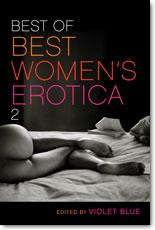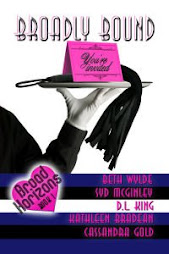In my conversations with other writers about the state of publishing, one of the topics that always comes up is print versus e-pub.
Since Amazon just launched it's new e-book reader, I thought this would be a good subject. Early reviews of the Amazon product basically say that 1) it's way too expensive, 2) people want integrated devices instead of something dedicated to one function, and 3) it's bulky and heavy. Like the Sony reader, I've heard - but have not verified - that the Amazon product only takes the files you download through them and in their format, which means fans of e-books can't get books from all their favorite publishers. Looks like a swing and a miss, but it's nice that they're trying.
I've also heard that several of the big box book stores are looking into installing e-book kiosks in their stores so that people can download books while in the store. This seems awfully counter-intuitive to me. Anyone who is already buying e-books knows where to find them online. These are internet shopping savvy people. Why get dressed, drive to a store, deal with parking, shopping,etc. when you can stay home in your bunny slippers and accomplish the same thing? Book stores obviously want a cut of the e-book revenue stream but do e-publishers want to give the stores that cut (especially since those same stores refuse to give shelf space to the print versions of these same books)? Right now, the publishers have an audience that buys directly from them. Why would an e-publisher want to encourage a practice that will only cut into their profits? (book stores, including Amazon, take a huge cut of the cover price. So when Amazon offers a book for 40% off cover, you can imagine how deeply they publisher had to discount it to get Amazon to take it.)
Speaking of publishers... From various sources, I get two very different pictures of e-books.
Print publishers say there's no money in e-publishing. And yet, they're beginning to offer e-books and include e-publishing wording in their contracts.
E-publishers, on the other hand, say that there's no money in print. Some e-books sell for 1/3 of the price of printed books. That should tell you something about the cost of printing, shipping, and storing printed copies of books. (print runs versus print-on-demand is a whole other ball of wax that I don't want to get into right now) Printed books currently have more prestige than e-books, so some e-publishers do limited print runs of popular books. One publisher says that print is break even at best for them, but it makes their writers happy, so they offer it as a bonus to their best-selling authors.
So what's the truth? Is the money in print or e-publishing for publishers? It actually might be a bit of both. Print and e-publishing are two different business models (something a few publishers are finding out the hard way).
I think that a lot of it has to do with the audience. Many people who buy e-books are voracious readers. They can consume many books a week. (And man oh man, is this a dream slice of the market.) Being rather sharp, these readers are opting for e-books for three reasons 1) cost, and 2) storage (I'll get into #3 below). When they are done reading the story, it only takes up memory space on a computer. Storage gets to be a problem after a while with printed books (glances at my teetering piles of unread books around the house.)
This shouldn't come as a shock since 50% of the US market for print books is romance novels, but generally e-book readers seem to like romance. Ah, but not just any romance. Because these women are computer literate, they tend to be a younger crowd, and this younger crowd generally wants something more than her mother's regency romance that ends in a chaste kiss. Today's reader wants sex. So what you see in the e-book word is a huge representation of erotic romance novels. This is point 3 of why these readers opt for e-books. Print publishers lagged far behind on the demand for erotic romance books, maybe because they thought that sex was icky, but their readers sure don't feel that way. The big romance publishers are getting into the erotic romance market now, but the audience has already been shown a different product that's cheaper, faster, and available for them whenever they feel like buying.
The last thing I'd like to mention about print versus e-books is what it means for writers. Print traditionally paid an advance, printed the book, and did a little publicity, but they don't do publicity anymore, and advances are shrinking down to nothing. E-books typically don't offer advances, but most have generous royalty sharing contracts. Many e-book publishers offer chat rooms, lists, and other vehicles to help their writers promote books. And e-publishers can produce books much quicker than print publishers can. Many e-publishers are very hands-on with their writers and offer great communication, something print publishers notoriously lack. One added bonus - with e-books, you're never out of print. Your backlist is always there, so when someone discovers you and wants to go back and read everything you've written, they can get it. The earning life of a book is vastly extended in e-publishing.
So what will win in the end? I don't think printed books will ever go away, but when 50% of the market for books is romance, and the romance readers are buying e-books, and the writers are getting tired of the way print publishers treat them, well.... I'm sure you can do the math.
Wednesday, November 21, 2007
Subscribe to:
Post Comments (Atom)















.jpg)











2 comments:
I read your post about Amazon and their new e-book reader, Kindle, but the talk up here in Silicon Valley is not about the delivery mechanism but about the DRM issue. The music industry is already struggling with this and losing. Apple is moving away from its DRM-protected mp3s as Amazon and others offer open music and the book industry is going to need to deal with the same issue. People like to share books, whether it's in the writes' and publisher's favor or not. A new business model is going to have to grow out of this conundrum.
You're right. This is going to have to be addressed. Fortunately, the music and movie industries have strong incentive to find a way to stop pirating, and the money to fund the research.
The e-book community is already having problems with file sharing. They get the ISPs to shut down pirate sites when they find them, but need to start taking people to court like the music industry did.
Post a Comment